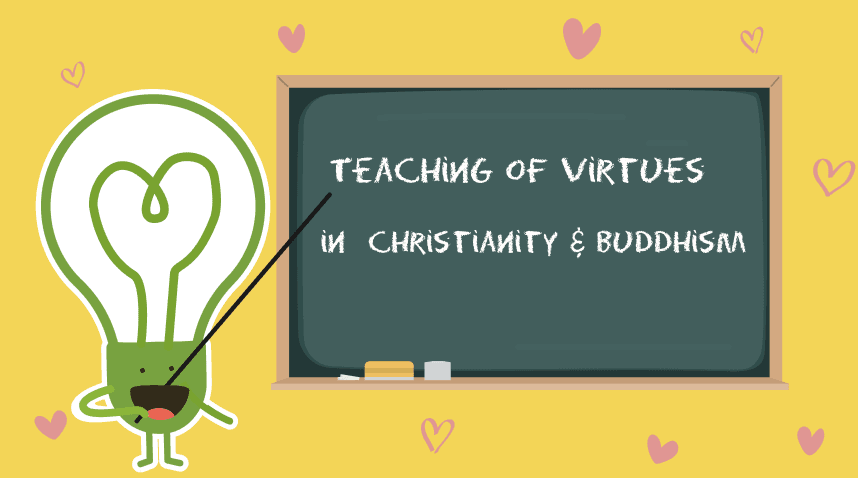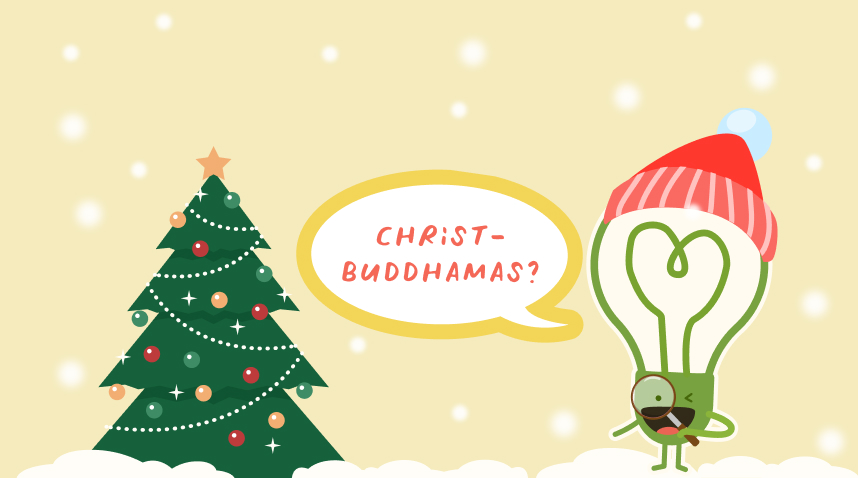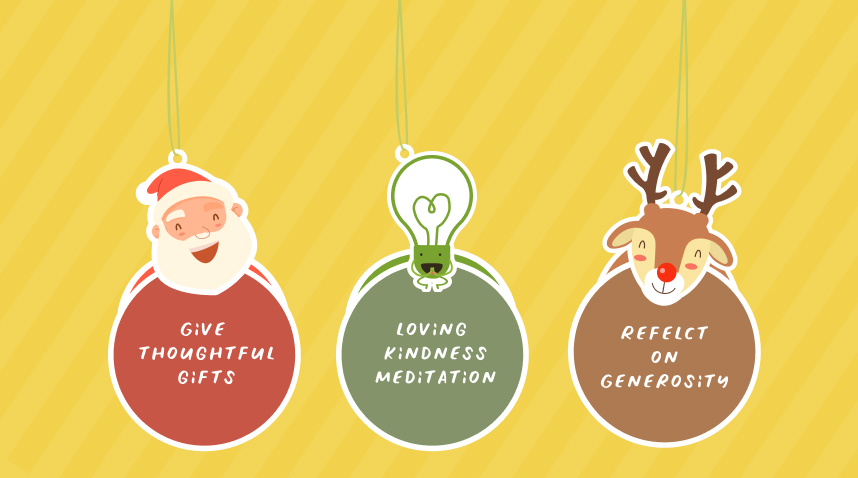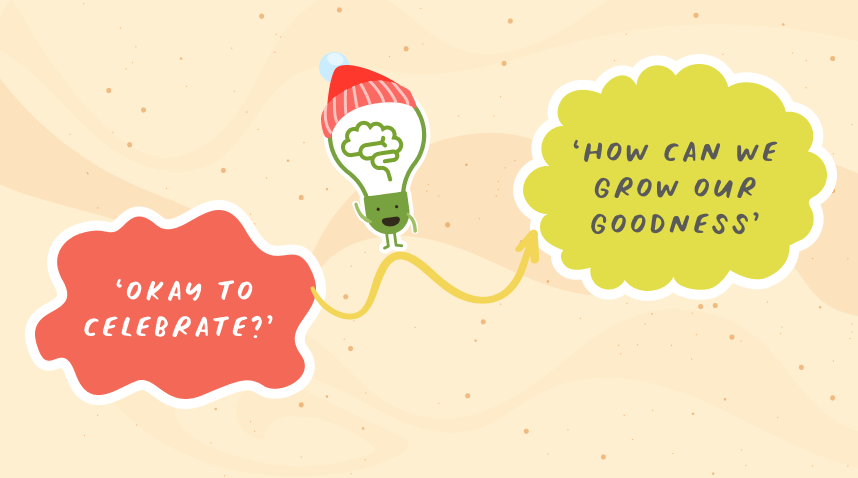
Good Friday Reminds Us Virtues are Heroic Acts
TLDR: Good Friday is a time to contemplate more deeply the teachings left to us by Jesus Christ. We look at the parallels between Christianity and Buddhism in the practice of virtues.
The author is a practising Buddhist who also finds many aspects of the teachings of Jesus Christ inspiring. She writes this article based on her understanding of the parallels between Buddhism and Christianity that does not necessarily reflect the teachings of Jesus or the Buddha. She hopes readers can read with wise discernment.
Good Friday is a time where all Christians observe fasting, penance and contemplate the crucifixion of Jesus. To me (as a Buddhist), Jesus showed us how to carry our crosses (suffering).
Remembering the iconic image of Christ carrying his cross during difficult times can help soothe one’s heart. Unlike the majority of us, he did not get rid of suffering through impatience or aversion. With great faith, he showed us it is possible to face suffering with forgiveness, patience and love. To me, this is one of the reasons he is so deeply revered.
Similarly, the Buddha taught us about suffering. He taught us what suffering is, the cause of suffering and how to cease suffering. Patience is a virtue to be cultivated in Buddhism so that we may endure suffering and let it go every time it comes up.
In this post, I would like to celebrate the spirit of Good Friday with the teachings of Christ that have inspired many people in the world.
Perhaps one of Jesus’ most famous teachings on virtue is that of giving and loving our neighbours as we would love ourselves. The Buddha too taught this in the practice of loving-kindness meditation, where we cultivate a love for ourselves and share it with all beings
The teaching of virtues

Another parallel between Christianity and Buddhism is that Jesus too, taught morality as the Buddha did. Morality helps us cultivate virtues (such as patience, joy, forgiveness and love) in our hearts.
In one episode of his life, Christ was criticised by the Pharisees for breaking the ancient fathers’ ceremonial tradition of washing hands before eating.
Jesus replied that whatever enters into a man from the outside (food) cannot defile him because they do not enter the heart but into his stomach and out into the sewer.
But what comes out of a man’s heart defiles a man. From the hearts of men come evil thoughts, fornications, thefts, murders, adulteries, covetousness, envy, pride and foolishness.
Jesus was pointing to us that the crucial thing is to cultivate goodness in our hearts instead of placing our attention on rites and rituals only.
Due to the evil that can emerge from the hearts of men, Jesus taught those who listened not to commit murder, steal, adultery, lie or swear. He encouraged us to love, instead of hate our enemies.
Similarly, the Buddha taught lay Buddhists not to kill, steal, lie, commit adultery, and not to dull our faculties with intoxicants. It seems to me (personal opinion) that these two great teachers are teaching the laws of nature that apply to everyone, regardless of religion.
Although these moral precepts seem easy on the surface to follow, they are not. We often see the faults in others instead of our faults. One of the famous quotes from Christ, “Why do you look at the speck in your brother’s eye but fail to notice the beam in your own eye?”
Easier to see others’ faults than our own

Jesus was right to say we are eager to see the trivial faults in others while ignoring our massive shortcomings. We often jump to hasty judgments based on our projections.
Recently, my sister told me that she is cutting down to two meals a day to lose weight. But she still drank protein to stave off hunger. I asked her why she was consuming protein shakes as I thought it is for vegans and those who are weightlifting. She said protein shakes contain 200 calories as opposed to 500 calories from a meal.
I told her that’s still three meals a day and commented that I too took two meals a day but without any meal replacement. She quickly jumped to a conclusion and said, “This is not a competition.” I was surprised as I did not make the comment to compete but rather to clarify that two meals a day meant no meal replacements (if she wanted to lose weight).
I cannot say that I have not projected my habitual thoughts onto others.
I often make baseless assumptions and have annoyed many people. One of the many assumptions I make is that no one ever listens to what I say and I also assume I know what others are thinking.
The list of prideful assumptions I make about others is too long to mention here.
Often, we enjoy judging whether others are keeping their morality well instead of perfecting our virtues. Doing this grows our pride instead of virtue.
Human laws do not necessarily follow nature
We look for ways to benefit ourselves in this world and are often encouraged by others. In a recent conversation, a friend said that it is not wrong if she were to take money from the ATM if the person before her forgets to take the money.
In her view, she is not stealing but merely taking. I would have agreed with her in the past. As a practising Buddhist today, I told her that is stealing because she is aware of taking another’s possession.
I have understood adhering to the precepts as laid out by the Buddha and Christ is for our well-being. It is because natural laws exist and we are not doing it to please the founders of religions.
Ayya Khema, a late prominent German Buddhist nun asked her students, “What is natural?” She said we often look for natural and organic food. But aren’t we a part of nature as well? We cannot escape the natural laws of birth, decay and death.
Emotionally, we are also constrained by nature’s laws because when we become extreme in either sadness or happiness, misery follows. We understand that sadness can become depression. Extreme happiness can also bring on a heart attack.
We often praise the intelligence of someone who can lie to get what s/he wants. We are also in awe when someone can cheat the system as featured in movies like Ocean Eleven to self-righteous murders in numerous superhero films.
Virtues are heroic acts
We admire heroes who save the world. But if we were to closely examine popular violent/action films, to the number of wars fought in our history, the heroes are as responsible as the villains for causing calamities.
Growing virtues in our hearts is an act of self-denial as opposed to self-aggrandisation. We are always looking for opportunities to grow our pride by increasing our education, wealth, network and possessions.
I am not saying it is wrong to educate or upgrade ourselves in our lives, but rather, we look outwards to grow our pride more than looking inwards to examine our hearts.
Virtues are heroic acts because we need to have the courage to deny the unskillful qualities in our hearts.
For example, someone who is impatient seldom thinks s/he is wrong and wants to get things done quickly their way. This can cause anger in himself/herself and in those around them.
Being impatient and self-righteous can make it hard to listen to differing opinions and not argue with another. By being patient, we can avoid arguments with another, and reduce the chances of getting angry. By taming our unvirtuous heart, we can become happier and as a result, reduce suffering for ourselves and others.
Conquering our bad habits and cultivating virtue is a heroic act because it is so hard to recognise and admit to our faults as opposed to blaming others for not accepting our views. Virtues are for our well-being and also do not cause harm to others. This is how we can love our neighbours as we love ourselves.
The purpose of developing virtues

The Buddha said that it is not necessary to believe in heaven or hell to practice virtues.1 While alive, virtues can bring joy and make life easier for us. As we do not create suffering for others, they do not cause us much trouble.
If upon death, we discover heaven and hell do exist, we are safe because having virtues in our hearts is the way to heaven. Cultivating virtues is like buying insurance for the present life and also the afterlife if we are unsure of the existence of heaven and hell.
In Christianity, the existence of heaven and hell is highly emphasised. Jesus taught, “Do not lay up for yourselves treasures on earth, where moth and rust destroy, where thieves break in and steal; lay up for yourselves treasures in heaven, where neither moth nor rust destroys, and where thieves do not break in and steal. For where your treasure is, your heart will also be.”
Jesus clearly tells us virtues in the heart is a timeless treasure compared to our temporary material possessions.
Holidays like Christmas, Good Friday and Vesak Day are not just holidays to take a break and be with loved ones but for us to remember the teachings of these two great teachers, the Buddha and Jesus Christ.
Note:
1. Sutta MN 60: “Even if we didn’t speak of the next world, and there weren’t the true statement of those venerable contemplatives & brahmans, this venerable person is still praised in the here-&-now by the observant as a person of good habits & right view”
Wise Steps :
- We can remember the virtues of patience, forgiveness and love by recollecting Jesus carrying the cross when carrying our own crosses (suffering)
- Before you criticise another, whether commenting on a politician, celebrity or friend, look at the speck in your eyes.
- Spend time recollecting your heart every day. Is there anything you have said or done that has made your heart uneasy such as criticising a friend? If you can do something to unburden your heart, do it the next day. If the deed cannot be undone, forgive yourself and those around you to lighten your heart.




